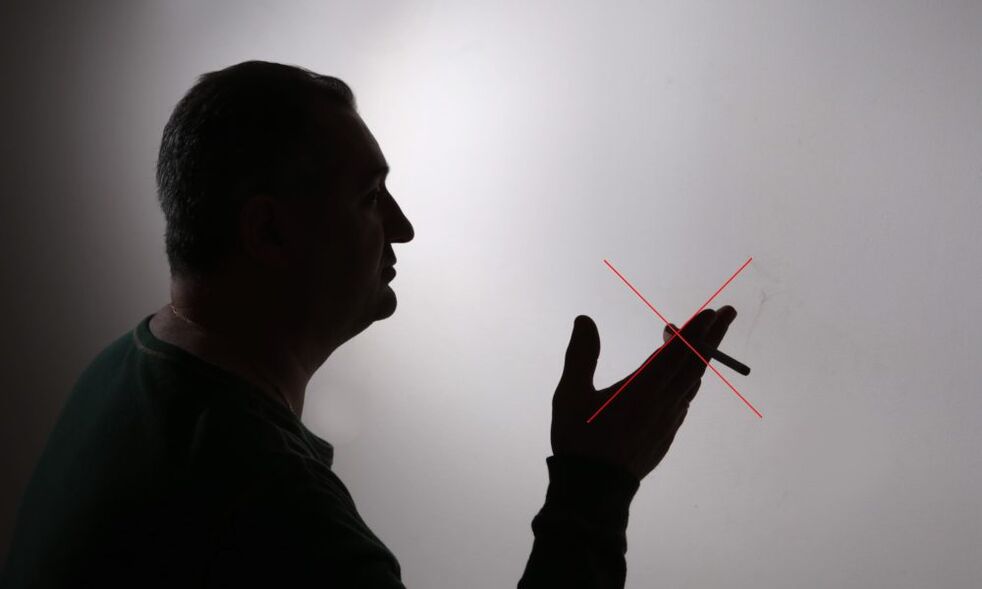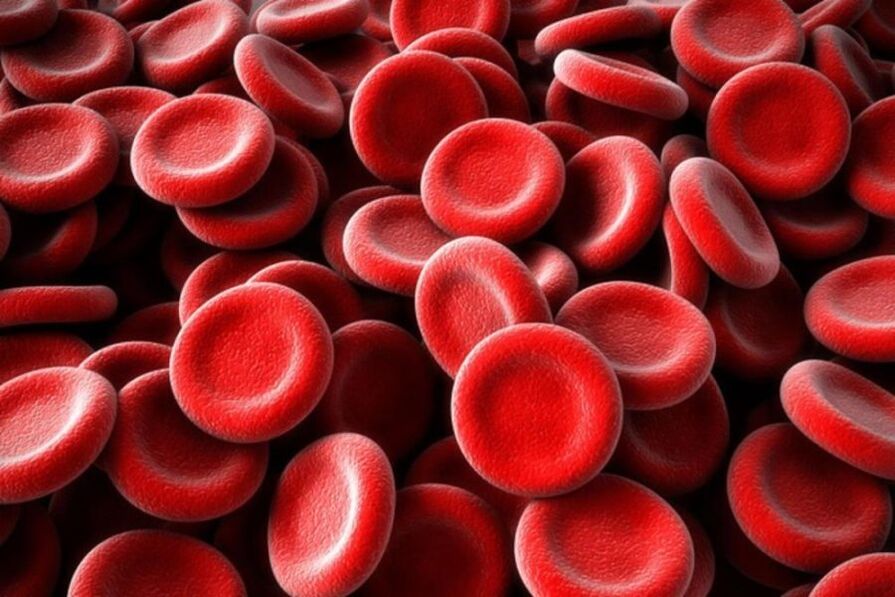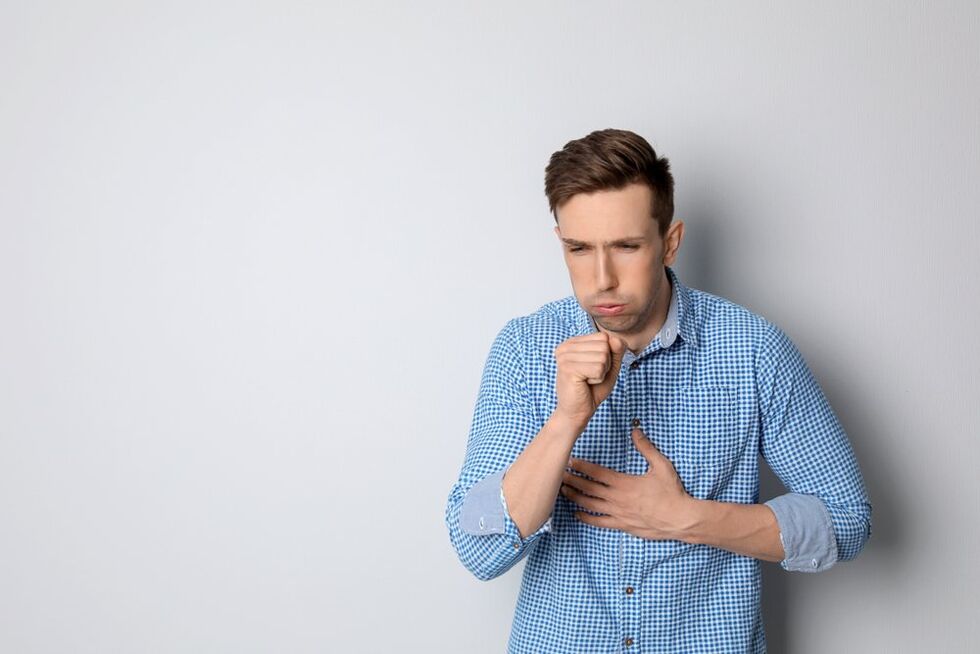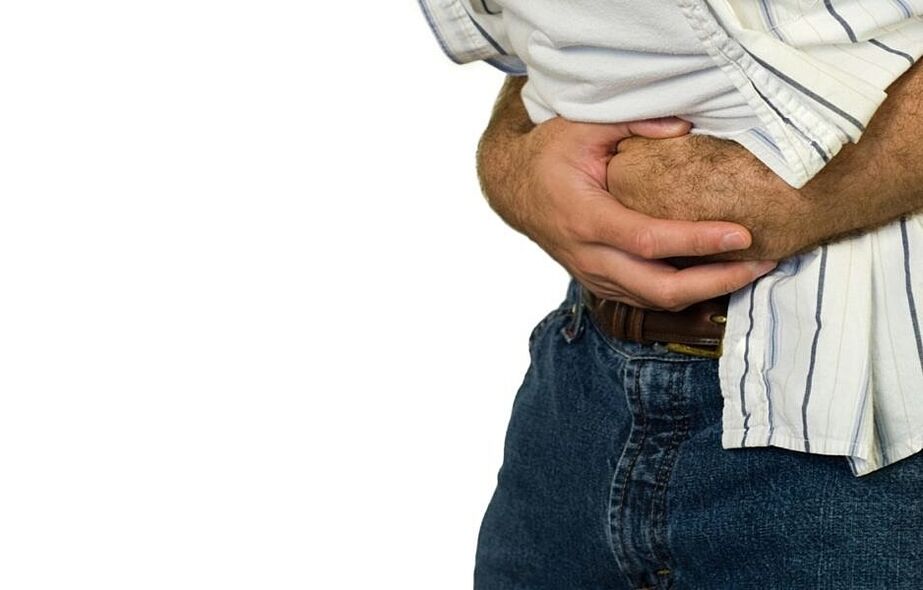
Smoking is a difficult addiction to deal with. Cigarettes were quickly introduced into the lifestyle, and without them a person would feel overwhelmed. Anyone who's tried to say goodbye to a destructive habit knows that it's not easy to do. After prolonged smoking, the body reacts negatively to the lack of nicotine, so completely refusing cigarettes can be accompanied by "withdrawal" syndrome. Before making tough decisions, you need to know what happens to your body and how to get through this time.
The pros and cons of quitting smoking
A person who decides to quit smoking starts a difficult journey with some discomfort. Change spooked smokers, so many gave up on their idea and picked up a cigarette again. The lack of nicotine manifests itself in various symptoms that indicate stress due to quitting smoking. Recovery can be painful and lengthy if the smoking experience is prolonged. The process of restructuring is always accompanied by psychological and physical discomfort:

- Weakened immunity - ex-smokers are prone to colds. If earlier nicotine was used as a stimulant, without it the body would be severely stressed. In this context, ARVI, acne, stomatitis, etc. appear;
- A violent cough with brown phlegm - you don't have to be afraid of it, because the airway is free of soot and soot due to the cough. Over time, the ciliated epithelium returns to work, draining the mucus and sputum that has accumulated in the bronchi;
- Irritability, nervousness, depression - withdrawal occurs when nicotine stops entering the body. It lasts for days. During this time, the former smoker kept a close eye on the person who inhaled the tobacco smoke, he dreamed of the whole process, and the smell drove him crazy and caused a strong desire to smoke. If early nicotine activated the pleasure receptors, now their work is inhibited. A person shows aggression and breaks down with a loved one. Relatives should support the former smoker, distract him and get him interested in new hobbies. Gradually, the craving will decrease, but the desire to smoke will not disappear;
- Abdominal headaches and discomfort occur - within a few weeks the body will be flushed of the decay products of nicotine, so the function of all organs and systems is normalized. A lack of nicotine can lead to vasospasm, abdominal pain, and impaired bowel movements. Unpleasant symptoms disappear after 2-3 weeks.
People who quit smoking feel very hungry, have insomnia, and complain of slow heartbeats. He began to rush to eat, resulting in excess weight. All of these symptoms are accompanied by a bad mood and irritability. But quitting smoking also has benefits:
- Respiratory recovery within 7 days;
- Bad breath disappears;
- The sense of smell is restored, and the taste buds begin to work normally;
- After a month, the blue circles under the eyes disappeared, the skin became more elastic, and the color improved;
- Blood circulation is normalized, blood vessels are conditioned, and male potency is increased.

Also, the blood is full of oxygen which nourishes all cells. Therefore, the skin and internal organs are less prone to aging. Toxins and toxins from the body are removed and immunity is enhanced. After a few weeks, the volume of the lungs returns to normal, and symptoms of chronic respiratory disease usually disappear. But the main benefit of quitting smoking is a reduced risk of high blood pressure, lung cancer, stroke and heart disease.
important!
Removing nicotine does not mean completely removing the decaying products that the body has accumulated over the years. Recovery happens gradually, usually over months or sometimes years.
body changes day by day
Any anesthesiologist will tell you what happens to the body of a person who decides to finally get rid of nicotine addiction. Doctors say the benefits of quitting smoking are great, but you have to be patient as your body recovers. The liver produces endogenous nicotine to maintain normal metabolism. Tobacco nicotine can't compare to your own, and it's in greater quantities. When levels of this substance drop, the body experiences nicotine starvation, requiring a new dose. If it is not available externally, the liver starts producing endogenous nicotine again. After 3 days, a person was able to quit smoking, but the addiction remained.
When it comes to psychological dependence, the situation is more complicated. There are many reasons for the pathological craving for smoking, it may be an innate tendency to become addicted, difficulty communicating with people, not wanting to stand out, etc. This dependence is hard to break free, and the more experience one has, the harder it is for a person to be on the road to a healthy life. Friends who smoke complicate the situation, and you have to be with them regularly. In order not to appear "white crow", many people inhale harmful fumes again, and this desire continues for many years, leaving no one behind. A psychotherapist will help to get rid of it, he will find out the cause of the pathological addiction and be able to motivate the patient.
How was the first 10 days without nicotine
Consider how your body recovers after quitting smoking and what comes with it:
- first day- Blood is purified from carbon monoxide and saturated with oxygen. A man is proud of himself, convinced that he can overcome a bad habit and is ready to go to the end. At this stage, cravings for cigarettes are mild and easily interrupted by advice like "I quit smoking. "Sometimes a person experiences dizziness, weakness, mild anxiety. Difficulty falling asleep on the first day, eating, and having a superficial and sensitive sleep;
- the next day- The ciliated epithelium begins to work better, the production of mucus in the lungs decreases, and the first signs of withdrawal syndrome appear. Excitement persists, but irritability and nervousness appear. Self-hypnosis still suppresses cravings, and sleepiness is replaced by energy. On a physiological level, changes such as increased appetite occur, and people are attracted to foods that taste distinctly. Worsening cough, shortness of breath, abdominal cramps, frequent urge to go to the toilet. A person has trouble sleeping and may experience itching and tight skin;
- day three- The repair of the bronchial and ciliated epithelium begins. Regulates blood vessels and reduces nicotine cravings at physiological levels. On day 3, tension increases, dependence is more pronounced, and one does not know how to get distracted and what to do. Restless sleep, often interrupted. Appetite increases dramatically, a person is attracted to "sweet food", belching and heartburn occur. When bending over, the head is turning, the heart is "shrinking", and there is a murmur in the ear. flaky skin with small dry pimples visible on it;
- fourth day. Blood flow to the brain normalizes and the stomach and pancreas continue to recover. Aggression gradually decreases, and irritation can be stopped with medication. Many people feel better, but are absent-minded and sleep shallow. May increase blood pressure, tinnitus, mild dizziness. Normal urination but constipation. Decreased appetite and cravings for certain foods are evident. Coughing occurs when a person feels a lump of sticky mucus in the throat. Many people experience swelling of the face, fingers and ears;
- fifth dayNo cigarettes - the ulcer heals on the tongue and the tone of the blood vessels normalizes. Parts of the bronchopulmonary system are recovering, and the work of the gut is still disturbed. On day 5, the euphoria disappeared, the health deteriorated, and there was a desire to smoke. At this point, it is easy to break free and not give in to treacherous desires. Food gets tastier, but that's only for dairy, citrus products, etc. Loose mucus is felt in the chest or throat, making it difficult to breathe. Intensive coughing up of thick, dark phlegm;
- Day 6Mucus secretion is increased, the work of the stomach and pancreas is normalized. Withdrawal syndrome is growing with new energy, with tearing, insomnia and irritation. It is difficult to restrain oneself when one is looking for cigarettes, but it is necessary. In this context, vegetative disorders come in the form of sweating, tremors, and nausea. Sometimes flank pain, bitterness in the mouth, and increased thirst. The black mucus is still coughing, and you can see the blood with silk threads in it;
- the seventh day- Physical cravings are almost gone and the body works peacefully without the usual dose of nicotine. From that day on, full recovery begins. The man is devastated, but has come to realize that smoking is a ritual, not a physical need. It is important to fully protect yourself from all harm related to tobacco products. Motivation to quit smoking rekindled. The mucus did not go away and the cough was severe. Intestinal tone normalizes, but constipation may occur periodically. Not smoking for a week has a positive effect on appetite, but fatty foods can cause heartburn.

important!
The first five days are the hardest for people who quit smoking. He experienced an intense "breakdown". At this point, the risk of breakage is highest.

The eighth day is characterized by the activation of smell and taste buds. The tissue in the lungs continued to recover, but the blood vessels in the brain had not become stronger. The start of the second week was calmer on an emotional level. Irritation, aggression, and depression are less pronounced. Psychological dependence persists and sometimes intensifies. A person complains of a sense of separation and loss of important things, and sleep is still disturbed. Food acquires new flavors, and a person seizes the stress and thus gains weight.
The ninth day was accompanied by an improvement in the gastric mucosa and digestive conditions. The bronchopulmonary system continued to regenerate and hematopoiesis normalized. It is difficult for people in a smoker society to restrain themselves, but the taste of tobacco is already disgusting. Possible alternatives to heartburn, abdominal pain, constipation and diarrhea. At this time, it is very easy to contract ARVI, develop herpes and allergic reactions.

Day 10 - The recovery process continues and immunity gradually improves. Cigarettes no longer cause painful thoughts, but people who smoke nearby can cause difficulties. At this stage, a person needs the support of a loved one because his own motivation is exhausted. Mucus cough persists and can be relieved with hot drinks or food. Many people produce gray or yellowish phlegm that smells bad.
Fighting Bad Habits The Last 4 Days of Phase 1
On the eleventh day, the small arteries that carry blood to the tissues improved. Now, metabolism and hormone levels are normalizing. This explains psychological changes, weight loss or gain. At the emotional level, aggression and arousal arise, and nicotine cravings intensify, interpreted as wondering if there will be feelings of disgust. The unpleasant symptoms reappeared, which was attributed to the withdrawal syndrome. Internal tension, tremors, dizziness are the consequences of oversaturation of the brain with oxygen.
important!
It is believed that you can suddenly quit smoking only if you have no more than 5 years of experience. In other cases, extreme measures are not recommended. Before getting rid of nicotine addiction, you need to see a doctor.
Day 12 - Chronic inflammation in the gastrointestinal tract and lungs subsides and the body's protective functions improve. Psychologically similar to day 11, one still needs support from loved ones. Non-heavy smokers noticed improved facial skin, reduced cough, and better digestion.
Day 13 - Cells are actively renewed and blood vessels are unstable. A person may try smoking out of curiosity. Unwell, elevated blood pressure, weakness, heaviness in the back of the head.
The fourteenth day is characterized by the healing of the bronchial mucosa, the adequate nutrition of the blood vessels, and the recovery of the tissues. The day was psychologically difficult, and some people tried another cigarette because they managed to hold on for a long time and a dose of nicotine didn't hurt, inspiring their behavior. On a physiological level, the cough subsides, the yellowness of the skin gradually disappears, and drowsiness, weakness, and lethargy appear.

The changes after quitting smoking persist for a long time, with a full recovery after a few years. After 8-10 months, the yellowing of the teeth disappeared, the volume of the lungs increased, and the condition of the skin and nails improved. If a person smoked more than one pack a day earlier, a year after quitting, the risk of stroke or heart attack was 2 times lower, and the risk of cancer was 3 times lower. The effects can be seen leaving the body on the first day of taking nicotine. Breathing becomes easier, the bronchi are cleared, and blood pressure is lowered.
how can you help yourself
If smokers decide to finally overcome their addiction, they must act now. Motivation can be a desire to get pregnant, stay healthy, etc. With goals in place, quitting smoking is much easier. First, the body should get the maximum amount of useful substances and vitamins. In the morning on an empty stomach, it is recommended to drink 1 glass of warm milk. It is recommended to go outdoors and exercise more. New hobbies will help you forget and break free from addiction more easily.
Some people find it easier to fight nicotine addiction with a friend or loved one. If not, just read the comments online to stimulate, maybe some netizens also need support.























